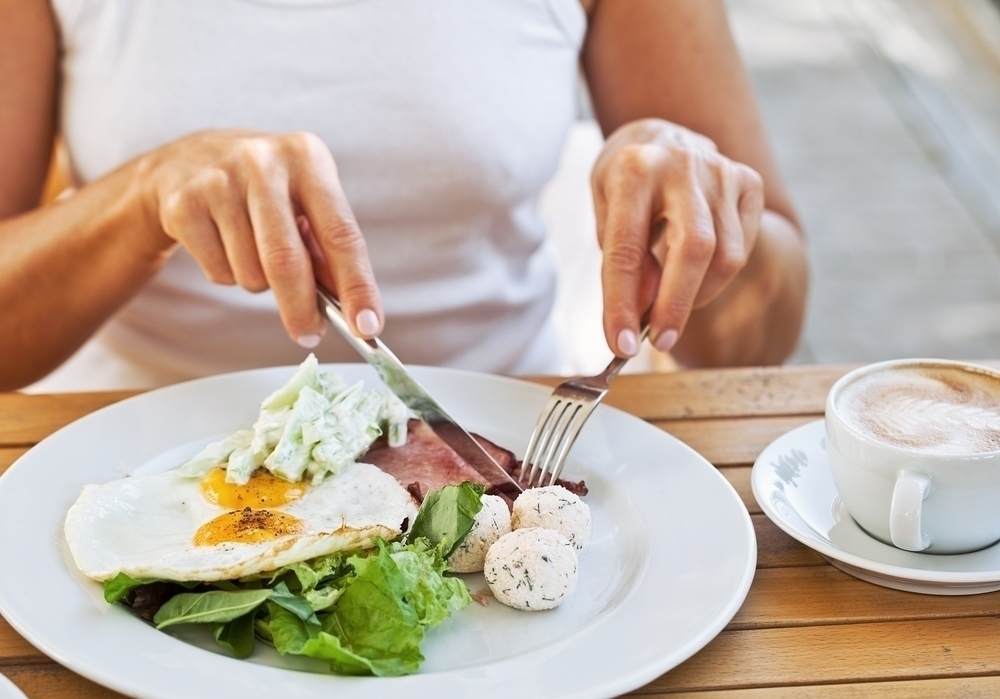
Zap PMS With Eggs
Cravings for junk food like pizza, chips, chocolate and ice cream are completely common during PMS, but gorging on these foods only feels good in the immediate short-term. These foods actually contribute to bloating, irritation and mood swings because of all of the sugar, salts and fats contained in them. There are foods that you can eat that will help relieve symptoms of PMS and keep your body healthy, and eggs are one of these foods. Eggs are a great source of protein, are highly versatile and can reduce PMS problems. Keep reading to find out what causes PMS and how eggs can help.
What Causes PMS?
Currently, the exact cause of premenstrual syndrome is unknown, but there are several contributing factors.
- Changes in Hormones – The fluctuation of estrogen and progesterone that occurs with your menstrual cycle is a major influence on the severity of your premenstrual symptoms.
- Changes in Brain Chemicals – According to the Mayo Clinic, “fluctuations of serotonin, a brain chemical (neurotransmitter) that is thought to play a crucial role in mood states, could trigger PMS symptoms. Insufficient amounts of serotonin may contribute to premenstrual depression, as well as to fatigue, food cravings and sleep problems.”
- Depression – As stated by the Mayo Clinic, low levels of serotonin are a contributing factor to depression. Women with undiagnosed depression may notice more severe PMS symptoms, and treating the underlying cause can help lessen PMS symptoms.
Common symptoms of PMS include:
- Anxiety
- Irritability
- Depression
- Insomnia
- Appetite Changes
- Tension
- Fatigue

How do Eggs Help PMS?
Heading to the refrigerator and pulling out a carton of eggs probably isn’t the first thing you would think to do when suffering from PMS symptoms, but doing so can help to reduce and relieve PMS symptoms. Eggs are nutritional powerhouses for PMS symptoms because they contain vitamins B6, D and E. A study involving more than 116,000 nurses indicated that diets that are rich in these vitamins help to reduce the severity of PMS symptoms. Scientists believe that these vitamins help control the chemicals in your brain that cause PMS, and may actually help regulate the effects of your fluctuating hormones. Experts believe that vitamin D has some influence over the levels of estrogen in your body, while B vitamins (including B6) are good for PMS because they help create neurotransmitters, like serotonin.
The next time PMS has you feeling uncomfortable and irritable, head to your kitchen and reach for a carton of eggs. Scrambled eggs are a perfect breakfast for PMS and if you pair your eggs with chamomile tea, you also will lessen the severity of cramps because the properties in chamomile tea can reduce muscle spasms. If eggs aren’t your favorite breakfast, or you run out of time in the morning to make them, make some hard-boiled eggs the night before and take those to work with you for a PMS-busting snack or toss them in a salad for some added flavor and protein. Even though eggs may not sound as appealing as the pint of Ben & Jerry’s you’re desperately craving, they will provide you with PMS zapping benefits while also avoiding the guilt that follows a junk food splurge. Get creative with your eggs and keep them on hand so that you can fight PMS with proper nutrition.



